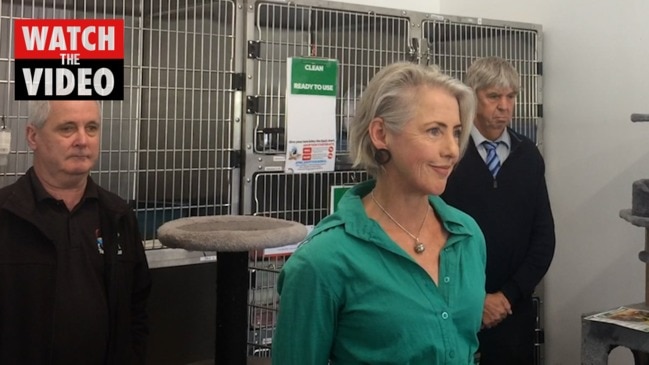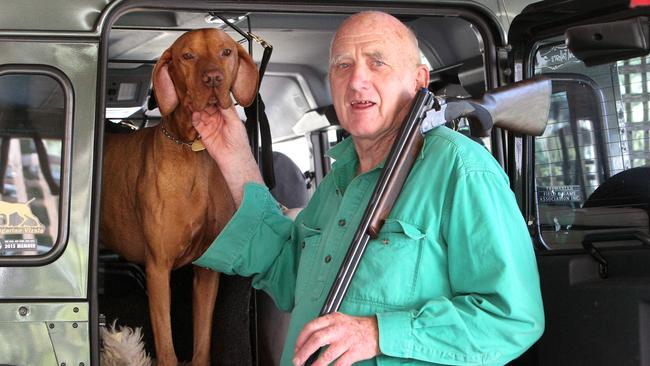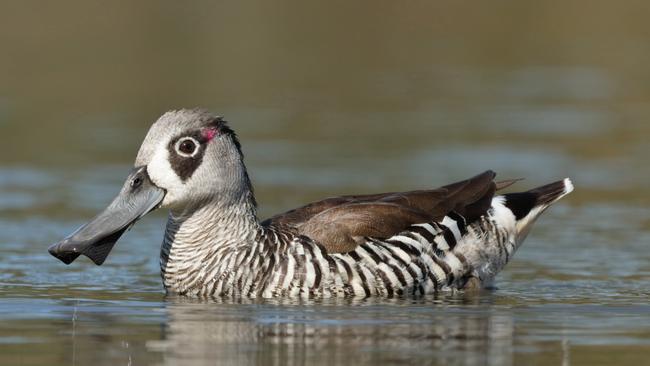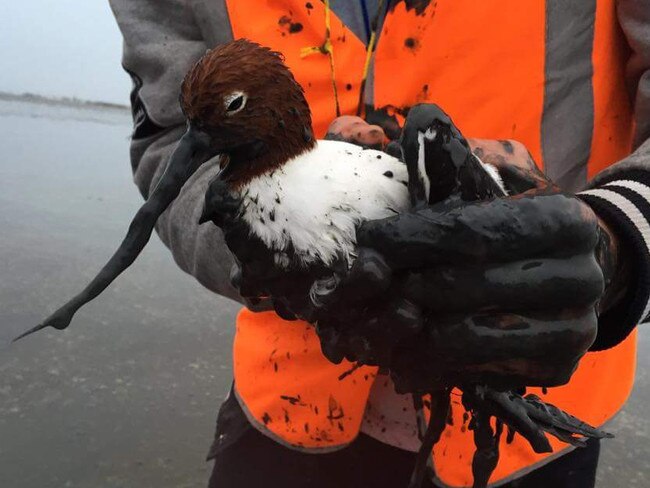Peter Darke says all ducks shot in Tasmania are eaten
A Tasmanian duck hunter says all the shooters he knows eat every bird they shoot and very few, if any, would take home their allowed daily limit of 10 during the hunting season.

Tasmania
Don't miss out on the headlines from Tasmania. Followed categories will be added to My News.
Duck hunter Peter Darke says all the shooters he knows eat every bird they shoot and very few, if any, would take home their allowed daily limit of 10 during the hunting season.
Mr Darke, who has been hunting ducks for 40 years and is part of Field Hunting and Conservation Tasmania, said hunting ducks was actually a service to the community because it protected crops and water for livestock from contamination.
Tasmania’s annual duck season starts in March and the Tasmanian Greens, the RSPCA and Birdlife Tasmania on Wednesday renewed their call for duck hunting to be banned in this state as it is in some others.
There are about 1500 registered duck hunters in Tasmania and each shooter is allowed to take 10 ducks each per day.
Those who oppose the practice say up to 50,000 ducks are in the firing line each season.

But Mr Darke said no hunters he knew would take anywhere near that number of birds.
“I’d be happy if I got two or three. Where I hunt there are about 15 guys and we might get 150 for the season. Now we are limited to double barrelled shotguns, we need to be a lot more careful and precise,” he said.
“Everyone shoots for the table. Recipe ideas fly left right and centre among the group.”
Mr Darke said duck hunting was a traditional activity.
“And not just in country areas. Wood ducks are prolific breeders and we do a service to the community,” he said.
“We serve the farming community. Mountain ducks damage crops like the 130 or so in the Midlands that were pulling out baby carrots from a farmer’s crop.
“And ducks in farm dams poo everywhere and make the water not fit for stock.”
Duck debate fires up with 50K birds in the firing line
THE annual debate over whether Tasmania should continue to allow duck hunting has fired up again in the lead up to the season which will see between 40,000-50,000 native birds shot.
The Tasmanian Greens, Birdlife Tasmania and the RSPCA all want Environment Minister Roger Jaensch to intervene and ban duck hunting in Tasmania as it is in some other states.
The season runs from March 11 until June 12 and the 1150 or so duck hunters registered in Tasmania are allowed to shoot 10 ducks each per day.
Greens MP Rosalie Woodruff said the “recreational event” was allowed to continue despite the obvious pain and suffering inflicted on birds, the threat to declining duck populations, and widespread community opposition.
“Supporters of duck shooting have again attempted to justify this retrograde practice as important for tourism, necessary for farmers, essential for conservation, and helping people put food on their plates. What a load of self-serving baloney,” Dr Woodruff said.
“The argument from shooters that each of them only takes a handful of ducks each year is patently false. If that’s the case, why is the 2023 season limit per shooter a ludicrous 10 ducks each day for three months? The government is sanctioning the opportunity for each individual hunter to shoot 930 ducks over that period.”

A government spokesman said monitoring showed wild duck numbers were at levels within the range seen in recent years.
“The Department of Natural Resources and Environment Tasmania manages a wild duck open season to provide access for recreational hunting and the department has strict regulations and procedures in place to ensure that the hunting of ducks is both humane and sustainable,” the government said.
“Tasmania has a number of species of waterfowl but only five may be hunted during the open game season.”
The RSPCA says there is “no justification for continuing to licence hunters to shoot ducks for sport.”
“Some birds will die from their injuries, some will survive but live in pain and become disabled, but because of their inability to forage, they’ll suffer through starvation and thirst, or they’ll be predated on,” RSPCA chief executive Jan Davis said.

“Tasmania’s native wildlife is globally recognised as unique and remarkable. It is an essential responsibility of the government to ensure the wild populations of these animals remain at healthy, sustainable levels. Even more shocking is that Moulting Lagoon, one of the main hunting grounds, is a world-renowned RAMSAR wetland.”
Ms Davis said duck shooting was not a highly visible activity.
“Relatively few people live near the wetlands where shooting takes place. But out of sight should not mean out of mind.
“Surely there is now enough evidence for the Tasmanian government to recognise changing public sentiment and take drastic measures to stop the slaughter by instituting a permanent ban on duck shooting.”




